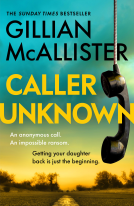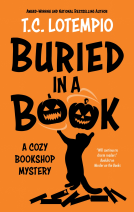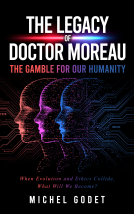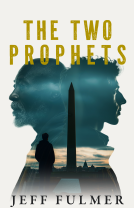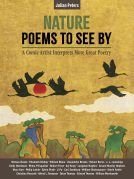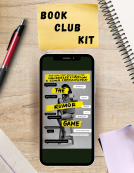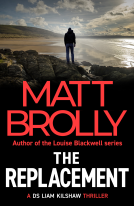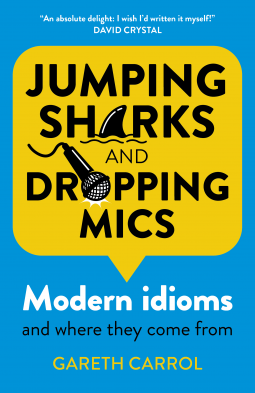
Jumping Sharks and Dropping Mics
Modern Idioms and Where They Come From
by Gareth Carrol
This title was previously available on NetGalley and is now archived.
Send NetGalley books directly to your Kindle or Kindle app
1
To read on a Kindle or Kindle app, please add kindle@netgalley.com as an approved email address to receive files in your Amazon account. Click here for step-by-step instructions.
2
Also find your Kindle email address within your Amazon account, and enter it here.
Pub Date 1 Mar 2022 | Archive Date 7 Feb 2022
John Hunt Publishing Ltd | Iff Books
Talking about this book? Use #Jumpingsharksanddroppingmics #NetGalley. More hashtag tips!
Description
A Note From the Publisher
I am a senior lecturer and researcher in linguistics at the University of Birmingham. My research focuses on how people use and understand figurative language, such as idioms and metaphor, as a part of everyday communication. As part of undergraduate and postgraduate teaching, I cover these topics and consider aspects such as cultural influences, language ability and multiple other factors in how people communicate idiomatically. I have published multiple papers and book chapters on idioms, focusing on how these are processed and understood as a part of real-time communication, and in particular comparing important differences between native speakers and language learners, and looking at idioms from different languages. I have also delivered keynote talks at international conferences on this topic. As well as academic publications, I wrote a featured article on this topic (Modern Idioms) for the language magazine Babel in 2019.
Advance Praise
An absolute delight: I wish I'd written it myself! The range of applications in new contexts is second to none. It blends etymology, social history and current usage, bringing together a wealth of British and American examples
David Crystal, author of The Stories of English, Let’s Talk, How Language Works, and many more books on language.
Available Editions
| EDITION | Other Format |
| ISBN | 9781789048568 |
| PRICE | $17.95 (USD) |
Average rating from 55 members
Featured Reviews
 Mike D, Reviewer
Mike D, Reviewer
I’m very pleased to be the first person to rate and review this lovely guide to modern idioms. It’s absolutely worth checking out, especially if you love words and the way they come together to sometimes say something completely different than the sum of the individual components of the sentence would suggest.
This book was exactly the sort of engaging etymological guide to idiom that nay word nerd can…well, nerd out over. It’s light and fun and gallops through different modern mediums, from books to tv to sports to present the readers with origins for the popular (and some not so popular) sayings.
It is heavily skewed in British direction, but a good idiom is a good idiom, irrespective of its place of origin. I actually learned some of new ones, including the titular one, which sounds like some kind of a great surfing adventure but actually refers to the time when a quality of creative work drops down in and the creators behind it get desperate, this is most popularly used for tv shows, when their makers resort to drastic measures to revive public interest in them.
For that and more, check out this book. It’s etymology lite, informative and entertaining, without ever getting bogged down by pedantism or taking itself too seriously. It’s also charmingly slim, so it goes by like a proper quick fun without ever overstaying its welcome.
Things were learned. Fun was had. The amateur linguist in me was delighted. Recommended. Thanks Netgalley.
 Sharyn B, Educator
Sharyn B, Educator
A decidedly British take on idioms and sayings that we all use often, as well as quite a few interesting ones that you’ve probably never heard. This was a quick, enjoyable, educational, read that was quite interesting. If you’re a word nerd, I would definitely recommend this book. Thanks to NetGalley for the advance read copy.
Loved reading about the origins of idioms I hear often. Would recommend this book for most anyone. Just know it is written by a brit, so if that style doesn't work for you, this may not either.
 Reviewer 796948
Reviewer 796948
Brilliant! Fun and witty with all the background detail of where those idioms began. Lots of TV, film and modern culture references, really enjoyed dipping in and out of this. Especially enjoyed discussing parts of this with my son who has autism, he can sometimes take things literally and struggle to understand what people mean when they use certain phrases. Had some great chats about when we might apply some of these idioms and learned a lot! Ideal for those who love language, great to dip in and out of. We made a quick family quiz out of some of the facts, Great gift for the curious, really interesting and useful book, highly recommend!
 Vicky Z, Educator
Vicky Z, Educator
So many of the idioms in here I was not aware of where they came from. I kept driving my family nuts saying "did you know where _________ originated?". I enjoy books like this with information that you can drop into conversations later.
 Sharley B, Reviewer
Sharley B, Reviewer
A very interesting book exploring some of the well known idioms in our British language, although a few I wasn’t as aware of!
This really is a great book for anyone who has an interest in language and the history and development of such things. Definitely something to get for the ultimate grammatical nerd out!
Readers who liked this book also liked:
Jeff Fulmer
General Fiction (Adult), Politics & Current Affairs, Religion & Spirituality
We Are Bookish
Multicultural Interest, Mystery & Thrillers, Teens & YA
